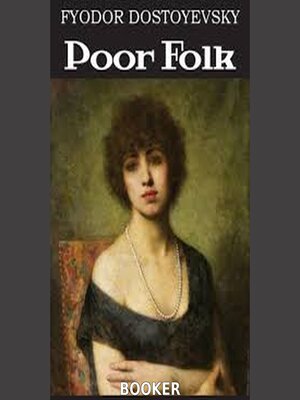
Sign up to save your library
With an OverDrive account, you can save your favorite libraries for at-a-glance information about availability. Find out more about OverDrive accounts.
Find this title in Libby, the library reading app by OverDrive.



Search for a digital library with this title
Title found at these libraries:
| Library Name | Distance |
|---|---|
| Loading... |
This audiobook is narrated by a digital voice.
Description (≈1500 characters):
Poor Folk by Fyodor Dostoevsky is a poignant and intimate epistolary novel that marked the author's literary debut and set the stage for his lifelong exploration of social injustice, human suffering, and the psychology of poverty. Told entirely through a series of heartfelt letters exchanged between Makar Devushkin, an aging, impoverished government clerk, and Varvara Dobroselova, a young distant relative also living in hardship, the novel paints a deeply human portrait of two souls bound together by compassion and mutual struggle.
Set in 19th-century St. Petersburg, Poor Folk examines the crushing weight of poverty not just as an economic reality but as a force that shapes dignity, relationships, and one's sense of self. Through Makar's earnest and self-effacing tone and Varvara's growing resignation, Dostoevsky reveals how society marginalizes the vulnerable, distorting their humanity in the process.
While the story is simple in plot, it is rich in emotional depth and social critique. The correspondence between the two characters becomes a lifeline—both a refuge from loneliness and a record of quiet desperation. The subtle shifts in tone and circumstance capture the tragic absurdity of a world in which the poor must choose between survival and integrity.
Poor Folk is a powerful early statement from one of literature's greatest moral voices. It is not only a cry against indifference, but a tender tribute to the dignity of those who endure with grace and hope.







